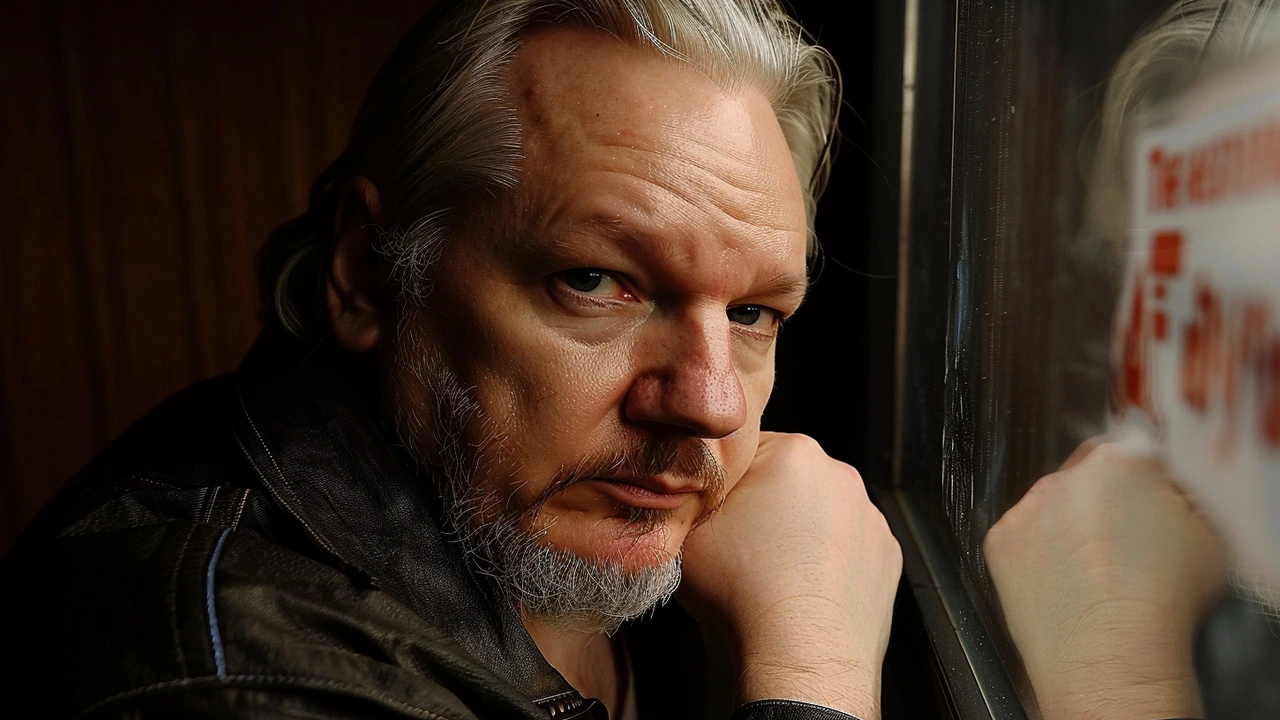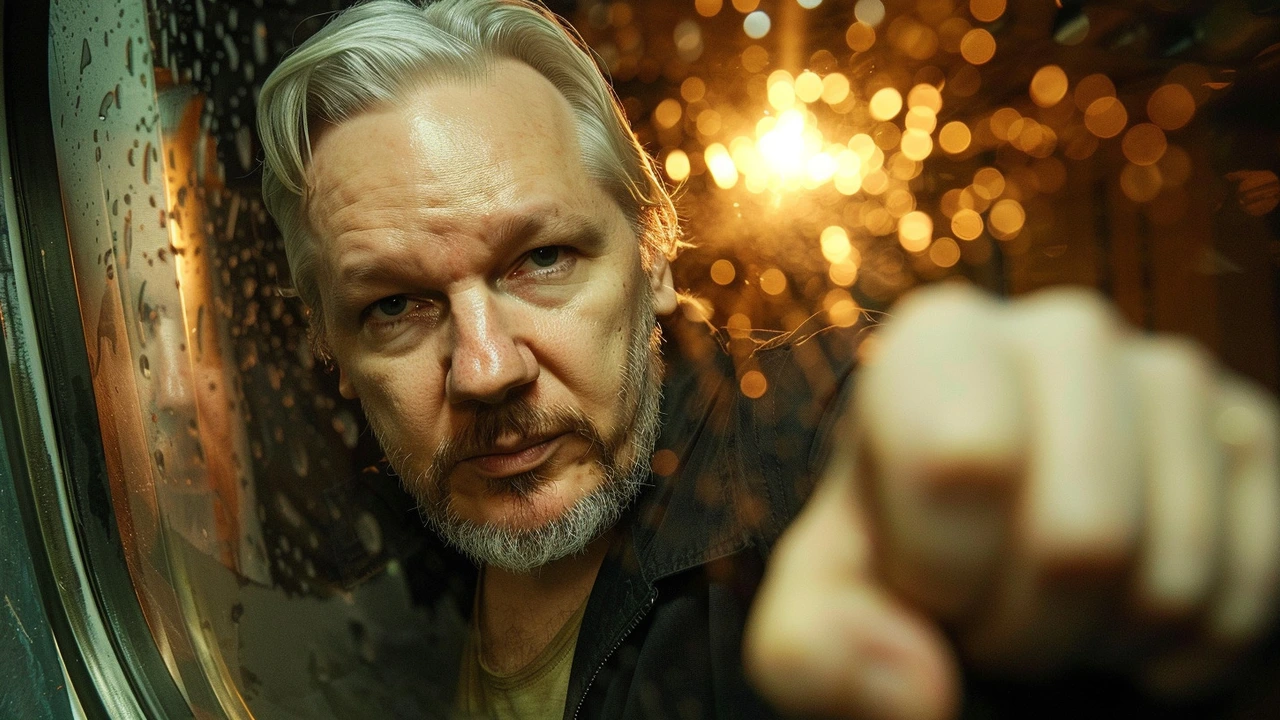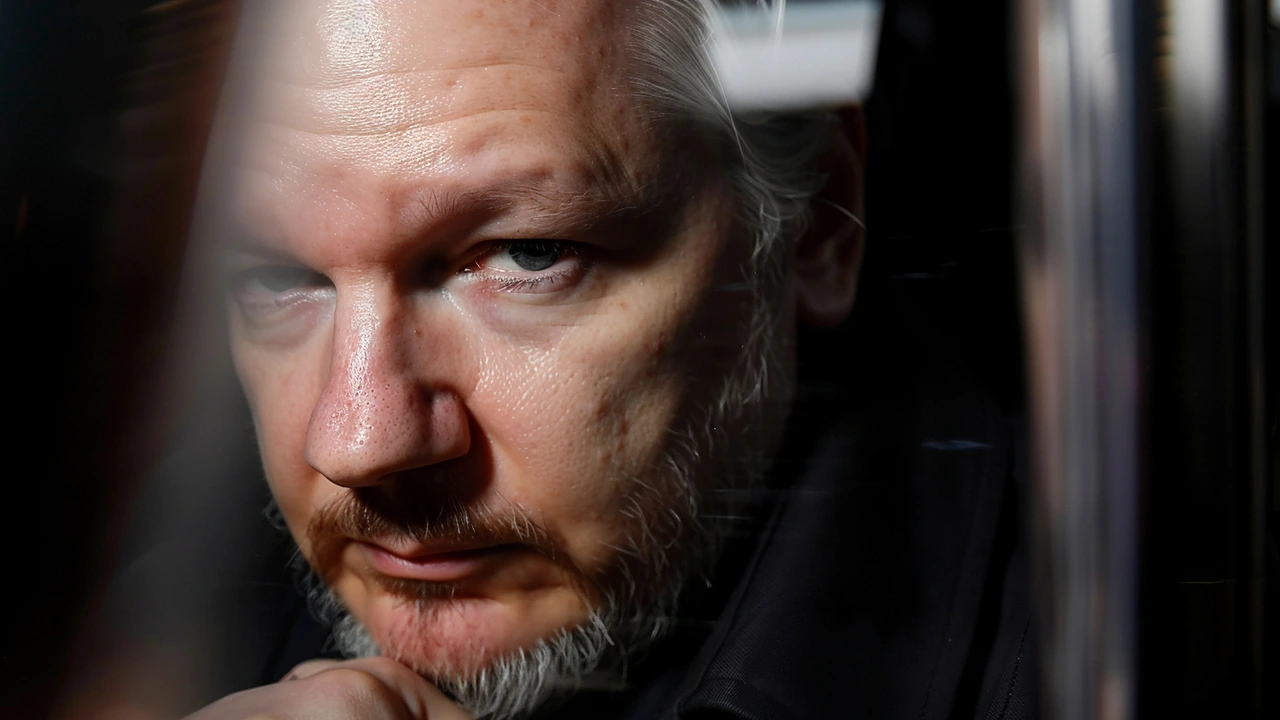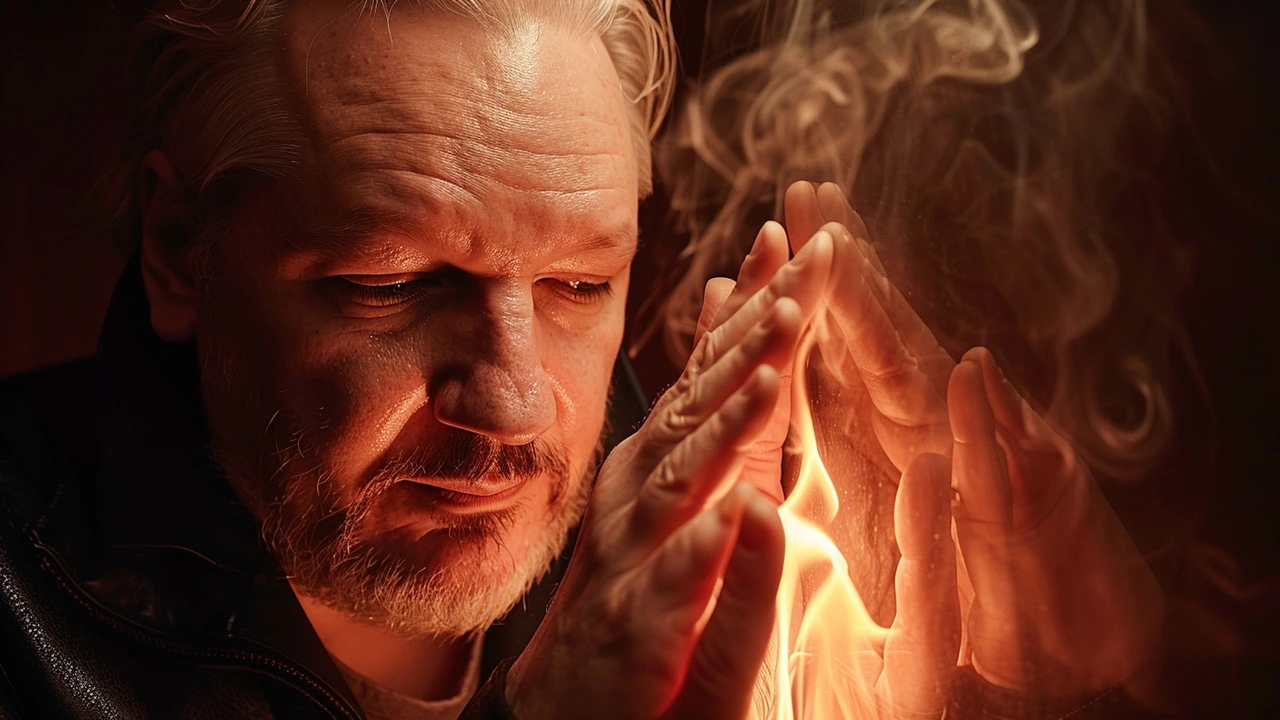Julian Assange Bound for Saipan: Legal Milestones and Potential Freedom Ahead

Julian Assange: A Controversial Figure in the Fight for Information Transparency
Julian Assange, the brain behind WikiLeaks, has become a household name across the globe due to his controversial work in exposing classified information. After spending five years confined in the UK, Assange is now en route to Saipan, a remote island in the Northern Mariana Islands. This unexpected destination for his US court appearance has aroused considerable attention. Following significant legal developments, Assange has agreed to a plea deal which could finally set him on the path back to his native Australia.

The Years in Exile: A Saga of Asylum and Imprisonment
Assange’s story took a dramatic turn when he sought refuge in the Ecuadorian embassy in London in 2012 to avoid extradition to Sweden over allegations of sexual assault. This move kept him out of reach of various legal entities but also confined him to the embassy's small quarters. In 2019, his asylum was revoked, leading to his arrest by British authorities. Since then, Assange has been battling extradition to the United States, facing charges under the Espionage Act for his role in leaking classified documents.

The Release and the Plea Deal: A Turning Point
The plea deal marks a significant shift in Assange's prolonged legal battle. The deal will see him plead guilty to certain charges under the Espionage Act but could also prevent further imprisonment. The specifics of the deal have not been publicly disclosed, but it is believed that this agreement aims to draw a close to a contentious chapter in international legal affairs. The fact that the hearing is to be held in Saipan, rather than a mainland US court, underscores Assange's reluctance to travel to the US given the potential risks involved.

Implications for Freedom of Information and National Security
Assange's case has always been more than just a legal issue; it has sparked intense debates worldwide. Advocates argue that WikiLeaks plays a crucial role in maintaining transparency, holding powerful entities accountable, and upholding the public's right to know. Detractors, however, argue that such leaks can pose severe risks to national security, endangering lives and compromising sensitive operations. The controversy surrounding Assange is emblematic of the broader tension between freedom of information and state security.
The Charges Against Assange
The US Justice Department has accused Assange of conspiring with former US Army intelligence analyst Chelsea Manning to access and disseminate classified national defense documents. These leaks exposed military misconduct and diplomatic secrets, leading to global reactions. Prosecutors claim these actions compromised the safety of informants and intelligence strategies. Assange's legal team, however, maintains that the charges are politically motivated, aiming to stifle journalistic freedom.
The Road Ahead: What’s Next for Assange?
If the deal is accepted, Assange is expected to serve no additional prison time and could soon return to Australia. This brings a hopeful end to an exhaustive legal saga that spanned multiple continents and martially strained international relations. His return to Australia will be closely watched, with media outlets and political analysts keen to see how his presence will impact ongoing debates on press freedom, governmental transparency, and the protection of whistleblowers.
WikiLeaks’ Legacy: A Mixed Bag
As Assange inches towards potential freedom, it’s essential to reflect on WikiLeaks' legacy. The organization has undeniably altered the landscape of journalism, making it possible to hold power to account in unprecedented ways. Yet, it has also raised significant ethical and legal questions about the boundaries of journalistic practices. Whether seen as a champion for transparency or a dangerous provocateur, Assange and WikiLeaks have left an indelible mark on the modern media landscape.
In summarizing Julian Assange's impending court appearance and potential freedom, we observe a complex interplay of legal proceedings, international pressures, and ethical debates. His plea deal in Saipan marks a pivotal moment in a saga that has captivated global attention. As the world watches, the outcomes of this case will undoubtedly shape the contours of journalistic practices and governmental transparency for years to come.
6 Comments
Dee Boyd
From a jurisprudential perspective, the Saipan hearing epitomizes the tension between procedural legitimacy and the moral imperatives that underpin democratic accountability. The legal framework invoked here, notably the Espionage Act, demands rigorous statutory interpretation, yet the ethical ramifications extend beyond mere textual analysis. One must consider the precedent this plea deal establishes for future whistleblower prosecutions, especially in the context of transnational information dissemination. The discourse surrounding Assange, therefore, must be anchored in both doctrinal fidelity and moral scrutiny.
Carol Wild
It is profoundly disconcerting how the media apparatus, in its ceaseless quest for sensationalism, has conveniently omitted the labyrinthine network of clandestine actors who orchestrate these judicial spectacles, and one cannot help but surmise that the very foundations of our legal institutions are being subverted by an opaque conglomerate of interest groups whose motives remain inscrutable, for they operate in the penumbra of power where accountability is a mere illusion, and while the public is led to believe that justice is being served, the reality is that a meticulously crafted narrative is being disseminated, one that seeks to vilify a figure who, in reality, has merely illuminated the shadows cast by sovereign overreach, thereby engendering a discourse that is less about the merits of the case and more about maintaining the hegemony of established elites, who, by their very nature, are predisposed to silence dissenting voices, especially those that dare to challenge the clandestine machinations of intelligence agencies, and in doing so, they perpetuate a cycle of obfuscation that erodes public trust, a phenomenon that is further exacerbated by the selective application of legal principles, which are wielded as tools of repression rather than instruments of equitable jurisprudence, consequently fostering an environment wherein the populace is rendered complicit in its own disenfranchisement, all the while the overt spectacle continues unabated, a veritable theater of the absurd that masks the underlying reality: the erosion of civil liberties under the guise of national security, a narrative that is meticulously curated by those who profit from the status quo, and it is incumbent upon us, as discerning observers, to pierce through the veil of fabricated legitimacy and recognize the profound implications of allowing such a system to persist unabated.
Rahul Sharma
Let us delineate the jurisdictional intricacies,; the United States' extraterritorial application of the Espionage Act,; coupled with the Commonwealth of the Northern Mariana Islands' statutory autonomy,; creates a legal mosaic that is both complex and unprecedented,; practitioners must therefore scrutinize the interplay between sovereign immunity,; the doctrine of forum non conveniens,; and the procedural safeguards afforded under international human rights conventions,; only then can we ascertain whether the Saipan venue constitutes a bona fide forum for adjudicating such transnational allegations,; moreover, the plea bargain's confidentiality raises substantive due process concerns,; transparency is paramount to ensure the legitimacy of any outcome,; in the broader schema, this case may set a binding precedent that could either fortify or erode the protective scaffolding surrounding investigative journalism worldwide,; consequently, stakeholders across legal, diplomatic, and civil society domains should engage in a concerted dialogue to mitigate potential adverse ramifications,; the stakes, therefore, extend far beyond a singular individual and touch upon the very fabric of democratic accountability.
Emily Kadanec
i think its kinda weird how everyone is actin like this is a big deal but actually its just another case of a guy who busted open some files and now gotta deal with the law. i guess some peopel think its unfair but honestly, the govnt dont like it when stuff leaks out. idk, just sayin.
william wijaya
Man, reading about this whole Saipan thing just hits you like a wave of déjà vu - the drama of a high‑profile figure finally facing the music, yet the underlying currents are so heavy with tension. It’s like watching a courtroom thriller where every sentence carries the weight of press freedom, national security, and personal sacrifice. You can feel the collective breath of a global audience holding its inhale, waiting for the verdict to either lift a cloud of oppression or deepen the shadows. The stakes are monumental, and the emotional resonance is palpable.
Lemuel Belleza
This whole saga is overrated.

Write a comment